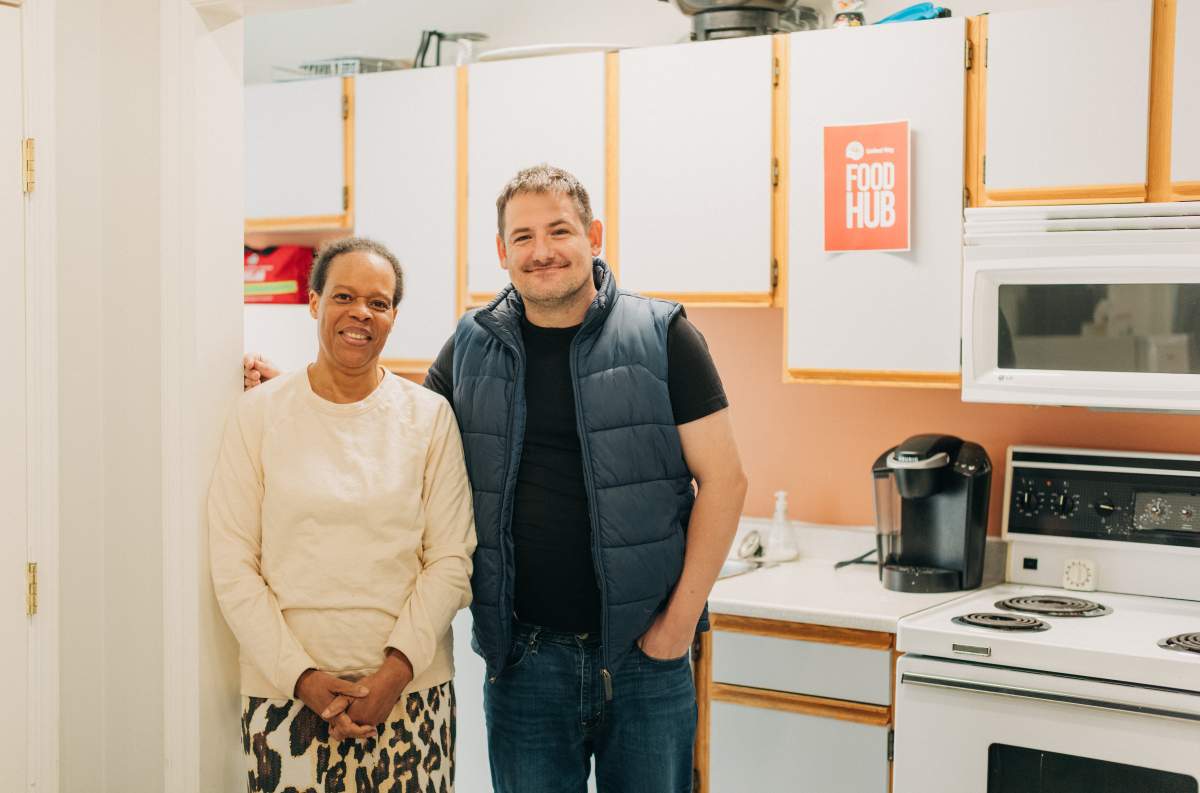More than one million people in British Columbia are struggling to afford food, a situation that United Way British Columbia says requires a comprehensive response, and fast. In 2022, nearly 17 per cent of B.C. residents lived in food-insecure households; in 2023, the number jumped closer to 22 per cent.

“There are many investments in communities around food security, but the number of people in need continues to grow. There is a need for innovative, multi-faceted programs and wrap around services to address this issue,” says Alžběta Sabová, the Director of Food Security at United Way British Columbia.
This is the backdrop to the work that United Way BC is doing to build a more equitable food system and reach all those in need. “The biggest misconception is that food security is a problem for only those who struggle with unemployment. I can almost guarantee you that there’s someone in your circle struggling with this issue, because it’s really prevalent,” Sabová says.
Gwen Wright, a project lead at a United Way BC Food Hub through the Kekinow Indigenous Food Program in Surrey, knows many overlapping reasons contribute to food insecurity. There are well-known factors such as precarious unemployment, growing housing affordability, and skyrocketing food prices. There are also practical challenges to people accessing good food day after day. “You get your cheque once a month, for example. Then when you get that money, it’s pent up because you have so much to buy and then your money is then gone within a day or two,” Wright says. This setup leaves little to spend on groceries over the next four weeks.

Get daily National news
While food insecurity has long been an issue, the rising cost of living has exacerbated the problem. “What we’re seeing lately is people who have an income, maybe a low income, accessing different food programs,” Sabová says. “The economic state today is really a challenge for people to access not only food, but good quality, healthy food.”
She adds that food insecurity in B.C. is growing among several different demographics—single parents, families with multiple children, and students. “We’re seeing a lot of food insecurity in post-secondary students who are now on their own and trying to secure their nutrition needs,” Sabová says.
In response, United Way BC works with over 300 different organizations across the province to comprehensively implement, improve, and open new food security programs such as regional community food hubs, food rescue initiatives and food security grants. The mobile app Food Link by United Way BC is an innovative tool, for example, that connects the food needs of nonprofit partners to local, regional, and small-scale food organizations and suppliers on-demand.
These initiatives boost food security by improving food access in rural, remote, and Indigenous communities; distributing food; increasing the availability of culturally preferable food; and supporting school food programs.
“The work ranges from getting people to access the delivery of meals to people looking for community gardens and also teaching food literacy so people can learn how to cook nutritious food on a budget and more,” says Sabová, adding that the programs cover a wide population—from children to seniors to people in the workplace.
Greater support for United Way BC programs would make a difference in this time of rising need, Wright says. “A small donation can even help change a life. That support just helps provide more resources to get more programs and get more food for more people.”

